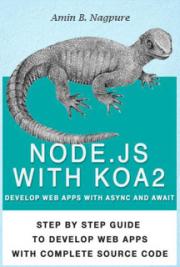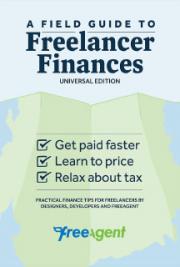Congratulations!
You have resell and master resell rights to this publication.
You can freely distribute it in any way you wish as long as it remains unaltered.
You may also sell it at any price you wish, by any media and may pass on resell rights to anyone you wish.
Keep updated!
If you'd like to know when I release a new free report, just
sign up here.
Copyright
All Information in this document is the property of Stonham Publishing.
You are granted distribution rights as shown above to this document providing it remains unaltered.
Violators will be prosecuted to the fullest extent of the law.
Disclaimer
Stonham Publishing assumes no responsibility for the use or misuse of this product, or for any injury, damage and/or financial loss sustained to persons or property as a direct or indirect result of using this report. We cannot guarantee your future results and/or success, as there are some unknown risks in business and on the Internet that we cannot foresee.
The use of our information should be based on your own due diligence, and you agree that Stonham Publishing is not liable for any success or failure of your business that is directly or indirectly related to the purchase and use of our information.
All trademarks acknowledged.
What Are Inbound Links And Why Are They Important?
An inbound link is any link on the internet that points to a page on your site.
Typically it looks like this:
Some text about your site
On most web pages, the cursor will change shape when your mouse hovers over the link, to give you a visual indication that you can click on the link. On some websites, the color of the link will change. But it's still a link.
When the search engines crawl the web, they take notice of the links they find. They will use links to discover new pages that they need to crawl. They will also use the links to decide on the importance of the linked pages and to give them an idea of the subject matter of the page.
Search engines aren't as intelligent as humans by a long way. This means that they have to rely on these approximations of intelligence.
For instance, for a long time now you have been able to search for the phrase "click here" on Google and chances are that the Adobe Reader download page will come up as the number one site. This is because a lot of sites have Adobe files on them and will put a link up for people without the Adobe Reader. This link will almost certainly say "click here". So Google and the other search engines think that is what the Adobe Reader site is about.
Dumb, huh?
Well, yes. But it gives us some valuable clues about how the search engines work.
What it means is that the "anchor text" is very important for determining the topic of a website or web page.
The anchor text is the bit that's usually blue underlined on a web page and that is clickable to go to the new site.
Sometimes you have some control over the anchor text, sometimes you don't. A lot depends on who puts the link on their page and whether or not you are able to influence what they put.
For instance, if someone is linking to your site from their blog, chances are that they will put whatever text comes to mind on their musings and then highlight a few words before pressing the Link button and putting on the link.
On the other hand, if you are commenting on their blog then you have the option to choose the anchor text.
Similarly if you have put an article on a site like
EzineArticles then you can control what the anchor text will be.
Google doesn't like all links to have the same anchor text – it uses this as one of it's triggers to check whether or not a site is trying to spam the Google index. It also doesn't like all links to point to the index (main) page of a site. Again, it doesn't think that this is the natural way that links are built. Google also likes to see links build up over time, rather than all appear at once like a rash. We'll cover this a bit more when we talk about getting links from online directories a bit later.
Are All Inbound Links Equal?
Google and the other search engines use very complex mathematical formulas (algorithms) to determine how high up a site should come in the search results when a phrase is typed in. The search results vary over time, by search engine and by whereabouts in the world you are searching. Some experiments are also going on in the search engine world to use your previous searches as a clue to what you are likely to be looking for.
Inbound links to your site will generally help you in the search results but all inbound links are certainly not equal.
If you are lucky enough to get a link from, say, the front page of CNN's site then this will count for a lot more weight in the search engine's view that a link from your grandmother's blog, for instance. You can get a very rough approximation of Google's view of the importance, or otherwise, of a site by installing the Google toolbar and looking at a site's page rank. Don't get too hung up about page rank – the publicly displayed page ranks are very, very, very approximate and are only updated every few months. The ones that Google uses are updated pretty much all the time. Plus Google are the only search engine to even give you a clue as to how important they think a site is. Yahoo and Microsoft play their cards even closer to their chests.
As a general rule, the more important a site is, the more "weight" a link from them will carry. And the more difficult it will be to get a link from them in the first place.
Keeping our earlier example, it's not too likely that you'd get a link from CNN's home page but it's highly likely that you could get one from your grandmother's blog.
To keep inbound links looking natural, you should aim for:
• A mix of different anchor texts
• A mix of different page ranked sites
• A mix of different pages that the links are pointing to
• An increase in the number of links over time
• A mix of different types of sites pointing to you (not just all blogs or all
directories, for instance)
• A mix of one way and reciprocal links
All these factors and more will be taken into account when a search engine decides how high up in the results you should come for your desired search terms.
What Are Reciprocal Links And Do They Still Work?
A reciprocal link is the internet link equivalent of "I'll scratch your back and you scratch mine".
A reciprocal link works by me saying that I will put up a link to your website so long as you put a link back to my website.
Of course, the search engines can spot reciprocal links pretty easily. Which has led some people to say that reciprocal links don't work any more.
Only the technicians at Google can tell you for sure whether this is the case.
My view is that since reciprocal aren't guaranteed to be given, the search engines will still give them some weight. But they almost certainly count one way links as being "better" than reciprocal links.
So if you can only get reciprocal links initially, go for them. Check the other site first to see that it is one you're happy to be associated with (but then you should be doing that anyway). Providing that's the case, go ahead and either request a reciprocal link or respond to a request that you've been sent.
You can also search out places that offer reciprocal links. Go to your favorite search engine, type in your target words and then add "add url" (in quote marks) before pressing the search button.
You should find plenty of places that will allow you to add your site to theirs. Take the time to go to the site in question.
You've already checked that the links page is indexed – you found it by searching on the web. So it's passed the first test.
Then snoop around by clicking some of the other pages.
See whether the site looks decent. Would you want to be associated with it? If so, go ahead and submit a reciprocal link request.
If all this sounds tedious, you're probably right. There are ways of automating these kind of link requests without being accused of spam. One of the ways is to use software to help you. A long standing program to do this is called Zeus. It takes quite a while to get to grips with it as you need to train the program as to which links are relevant to your site. This gets better over time and Zeus provides a good way of keeping track of your links.
Reciprocal links are still worth getting but the general opinion is that one way links are even better.
How To Get One Way Links
A one way link is a link that points to your website without the need for you to point back to the other site.
The search engines generally view one way links as being more valuable than reciprocal links. The main reason for this is that they tend to be harder to get. So in the eyes of the search engines, harder to get means more valuable. Simple, huh?
There are a number of different ways to get one way links. Most of them involve some time and effort on your part but it is possible to delegate this kind of task to other people, using sites like Rentacoder once you start getting some money in.
Articles are an excellent way to get one way links. You submit an article to a site like EzineArticles and make sure that your author's bio link at the end of the article has a link back to your website. You have control over the keywords used in the link, so you can vary them from article to article. You also have control over which page is hyperlinked, so you can vary that from article to article as well. Articles submitted to EzineArticles are checked by a human editor, so they need to be reasonably good quality and 100% original. Don't worry – you're not subjected to the same kind of rigorous standards that you would be by your English teacher. A chatty article is fine.
If you're not a very good writer, you have two choices. You can follow the instructions in books such as Write Like A Maniac, which talk you through the process. By the time you've finished that short, chatty, book you should be churning out good quality items in next to no time. Alternatively, you can outsource your articles to people all over the world at sites like Rentacoder. Standards vary, so you have to carry out your due diligence by checking the potential writer's feedback and some sample articles. Once you've done that, you should be able to get reasonable quality articles written on near enough any topic imaginable for a handful of dollars apiece.
Pace out your article submissions. Set yourself a timetable and do your best to stick to it. A regular pace of one article a month is better in the long term than a flurry of half a dozen articles then nothing.
Whilst EzineArticles is currently the best article directory, you should also consider submitting your articles to other directories as well. You can do this yourself, which is very time consuming. Or you can use an article submission software program, something I've personally not had much success with. Or you can do as I do and use an article submission service that costs very little and sends out your article to almost all the article directories (with the notable exception of EzineArticles). My preferred service is iSnare. They've been going a long time, don’t cost very much and do the job. At the time of writing, their charges are between $1 and $2 per article that you send out.
The next way you can look for one way links is through the myriad of small directories that exist on the internet. There are services out there who do this for you but the problem I've found is that they don't vary the anchor text that is submitted, so the links will be very "samey". Which the search engines don't like. The other snag that's often mentioned is that all the links are submitted in a very short time period. Search engines don't like a sudden burst of new links. In my view, this isn't too much of a problem as each directory takes its own time to include you, so the links will appear over a period of days, weeks or even months.
A better alternative in my view is to submit to these directories yourself. I use a piece of software that semi-automates the link directory submission. It keeps track of which directories are accepting additions. It also keeps your standard text and completes most of the forms for you, which is a great time saver. On top of that, it keeps tabs on which directories you've submitted to, so you can spend a few minutes or hours at a time and not worry about losing your place. Plus it sorts the directories by page rank, so you can tackle the ones that are likely to give you the best search engine boost first. Check out the demo version they offer before deciding whether or not the software is for you. Longer term, you can always outsource something like this.
Moving up a notch in your one way link quest, it's time to investigate other services that will provide you with one way links for little or no effort.
There is a monthly subscription service called 3Way Links that gets over the reciprocal link problem. It uses clusters of sites and clever software that allows them to link to each other in a roundabout way. Site A links to Site B links to Site C which in turn links back to Site A. This is reciprocal linking that is more difficult for a search engine to figure out, as each link looks like a one way link. The other clever part of the 3 way link software is that it varies the anchor text of the links. If you remember, the search engines don't like all the anchor text pointing to a site to be identical. 3 Way Links takes care of that for you by using different anchor text in varying proportions. It also takes care of the problem of lots of new links appearing instantly by spreading out the new links to your site over a period of time.
If you want to use software but want greater control than 3Way Links provides, then the other program you should consider is SEO Elite. I've never personally taken the time to get to grips with it but a friend who did so got some spectacular results very fast whilst only using a fraction of the program's functions. SEO Elite has another advantage over 3Way Links. It's a one-off purchase rather than an ongoing monthly subscription. Another advantage is that, because everything is under your control, SEO Elite will allow you to control which pages are linked to. Which means that if you took the time and effort, every single link could have different anchor text and point to a different URL. That's probably overkill, but you could certainly vary the text and the URLs a lot more with this software than you could with 3Way Links. In the eyes of the search engines, this variation is a very natural way for links to occur, so your newly found links will likely have more "weight" with the search engine's algorithms.
Blog comments are another way that you can get quality one way inbound links. As you probably know, blogs are usually updated frequently. This means that the search engines tend to crawl blogs frequently. But even if the search engines don't crawl too often, blogs also have a service called pinging that notifies various services every time they are updated. There are also specialist blog search engines. So any comments posted to a blog have a good chance of getting picked up and providing you with one way links.
You can search out blogs to comment on using the search engines. Or you can delegate the task to blog commenting software. This kind of software doesn't actually post comments for you but it takes away the pain of searching. Blog comment software will track down blogs that appear to be relevant to your topic. The software will then also check the page rank of the blog, so you get an idea of whether it's worth your time and effort putting up a comment. It's then up to you to read the suggested post and come up with a decent comment to post. Blog comment forms have a space for your URL, so you can place this there to get a one way back link.
The blog commenting software that I've used is called Comment Hut. It comes in two variations: a free version that only looks for Wordpress style blogs and returns about 10% of the results that the full version (which isn't limited to just Wordpress blogs) will give you. The software is well supported by its author and does exactly what it promises. As with most of the other software mentioned here, you can always delegate the day to day use of it to someone else.
Social Bookmarking And Other One Way Links
You may have come across social bookmarking sites in the results of various searches you've carried out.
There are lots and lots of them.
The typical aim of a social bookmarking site is usually to give you a place on the web to store your bookmarks. So if you're away from your PC you can still find your favorite sites.
Some social bookmarking sites purely do that job.
Others, such as Stumbleupon go further and suggest other sites that you might be interested in, based on sites that you've "stumbled" (i.e. bookmarked).
There is software available that will allow you to automate your social bookmarking activities but I don't recommend it as over-use can lead to being banned from the different social networks in short order.
Instead, it's better to read up on social bookmarking and develop your own strategy for getting one way links from the various social bookmarking sites.
Squidoo is another excellent place to get one way links as well as to sell affiliate products. Essentially you create a web page on Squidoo (which they call a lens). They have lots of tools that you can use to create this quickly and easily. People then use your lens as a starting point for their search. Since you are the editor of your page, you can control which links are included on it, including links to your own sites and affiliate programs that pay you money. The best guide I've found about Squidoo is by a lady called Tiffany Dow. You can find it here.
Other Resources
Your space on sites like MySpace and Facebook can be used to drive traffic to your site. These sites all have ways of getting new "friends" in cyberspace. You can then gently market to these friends, sending them to your website or other offers. This isn't my area but I know that a lot of people are making good money using sites like MySpace. Check out the MySpace guide to find out more.
Craigs List is another way of sending traffic to your website. You place adverts on the site which in turn send traffic to your site. Again, it's not an area I'm particularly familiar with but there is a lot of evidence that it drives traffic to your site, which will help whilst you are building up your network of links.
Ebooks and reports like this one can be a valuable source of links into your site. Whilst they aren't counted by the search engines, they still send visitors to your site. Which is the whole idea as far as I'm concerned. The best report I've come across for creating the kind of report that you're currently reading is called Viral Sneakiness. It covers the whole process of creating a free report and then publicizing it.
There are services out there that offer to create text links back to your site. You need to do your due diligence before signing up for these services. Make sure that it's not easy to find out the pages that the text links are added to – the search engines (especially Google) frown on this method of getting one way links to your site. I've not tried them myself, but one such service can be found here.
Educational sites are often rated highly by search engines. It is possible to get links from .edu sites if you know what you're doing. Check out the report on doing this – it's not free, but it's very cheap from here.
If you want to take your internet knowledge higher, get hold of the last interview that Cory Rudel did before he tragically died in a car racing accident. This was a 3 hour telephone interview with Dan Kennedy and you can get hold of the MP3 here. Between them, Dan and Corey have generated hundreds of millions of dollars worth of sales. The techniques they discuss are still perfectly valid today and the interview is well worth spending the time to listen to.







